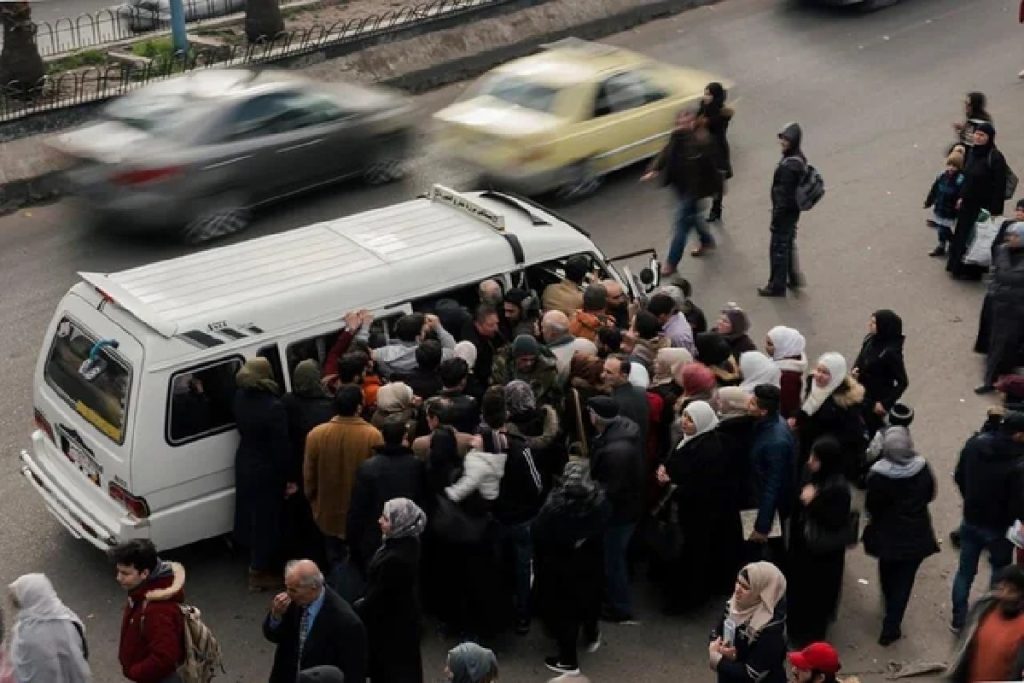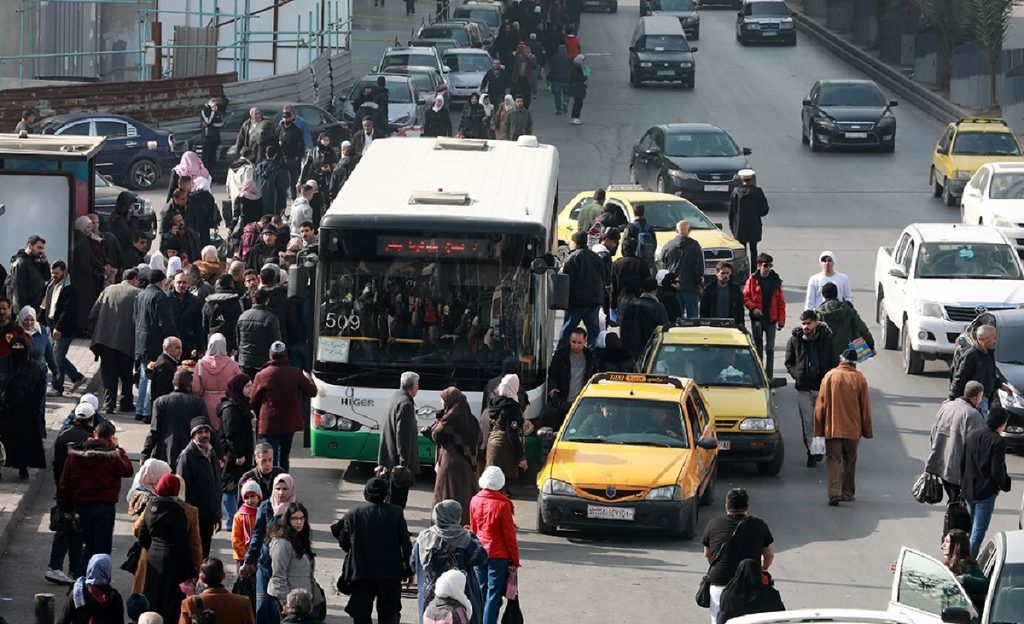Damascus to Enforce Gender Segregation on Public and Private Buses
Zajal Transport Implements Male-Female Separation Following Successful Trials in Other Syrian Cities.

Watan–A senior official at the General Company for Internal Transport in Damascus, “Zajal Transport,” revealed plans to implement gender segregation in public and private internal transport buses in the Syrian capital within a few days.
The newly appointed official stated, “We are actively working on this issue and will implement it on the ground within days, following the success of the trial we conducted in Idlib, Aleppo, Hama, and Homs, where it was highly appreciated by the residents.”
Regarding the new boarding and alighting procedures for passengers, the official explained, “We have extensive and proven experience in Idlib province. The segregation process will be applied to all forms of public and private collective transport, including service vehicles. Men will be prohibited from sitting next to women, with the general rule being that men sit in the front and women in the back.”
He continued, “We encountered some difficulties, but we hope the people of Damascus will cooperate with us, making things very easy. When a transport bus stops at its station, men will board and alight from the front door, while women will do so from the rear door. This experiment will be applied across all Syrian cities.”

Currently, the internal transport company in Damascus owns 100 buses, most of which are new and were donated from China before the fall of Bashar al-Assad’s regime.
The official added, “We are ready to increase the number to a thousand buses if necessary. Our capabilities are very high, and the company’s operations are running smoothly without any issues in fuel supply or maintenance.”
Source from the Internal Transport Company: Decision to Implement in the Capital within Days
Regarding the preferential prices offered by “Zajal Transport,” which are approximately half of what other private transport cars charge, the official clarified that “transport fares in the capital are being re-evaluated, and instructions will soon be issued to standardize prices for service vehicles and buses. Those who violate the new pricing will be punished or have their licenses revoked, but these measures require some patience.”
In a statement from a young woman who used a public transport bus on the southern ring road in Damascus, she said, “The implementation of gender segregation is welcome under these circumstances due to the severe overcrowding, which is due to the low prices desired by the poor classes.”
She continued, “We have to board the bus while feeling very embarrassed by the crowding, as do the youth and men. Imagine how our situation will be when one bus carries more than 70 passengers, most of whom are standing.”

The woman, who preferred to remain anonymous, pointed out that “this abnormal overcrowding sometimes leads to harassment of women by some ill-mannered individuals under the pretext of crowding, often resulting in conflicts and altercations.”
She added, “Gender segregation these days is more than necessary. However, if a large number of buses are provided and we overcome the overcrowding problem, then the segregation between men and women can be reconsidered, as I believe there will be no need for it then.”
Another passenger, said,” did not reject the experiment in principle but expressed his observations.
He stated, “Implementing it on the ground means that buses will become even more crowded, especially in the male section, indirectly leading to an increase in theft and robbery by the weak-minded and thieves who will definitely exploit the crowding.” He questioned, “What if a man and his wife or a young man and his sister are on the bus? Should they also be segregated, especially in service vehicles that only carry seated passengers?”






